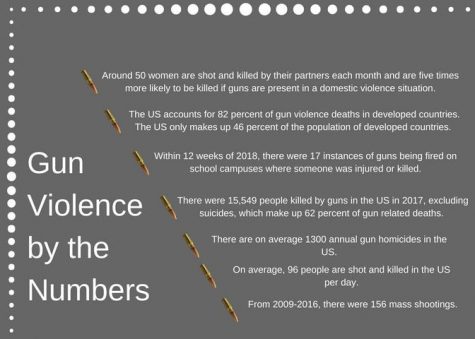Opinion: Teachers should give extra credit for non-academic things
April 24, 2019
Recently, a few teachers at Fenton have given students the opportunity to earn “extra credit” through non-academic means. One of the ways they have done so are through purchasing supplies for the classroom. Extra credit can be an opportunity to fix a grade or improve performance in a class, regardless of how low the grade is or the number of points offered for the assignment.
“I like to offer “academic” extra credit,” Spanish teacher Nikole Smelis said. “When I was in school, we had to write vocab words 5 times each, I hated that, but it is beneficial. I offer extra points for activities like that. Also, when a student asks a question that I don’t know the answer to, or is just a really good “look up” kind of question, I offer extra points for those who want to look it up. I don’t really offer these as “extra credit” (like 5 extra points on a quiz or something) — I offer it as bonus participation points. (This sometimes will be extra credit for the student, but sometimes for the student who maybe doesn’t participate a lot in class, it just gives them some points in that category.)”
Extra credit can be academic or non-academic. Academic oriented extra credit could feel like any other worksheet, while non-academic assignments will give students a much-needed break from anything that possibly feels like a homework assignment.
When a student needs to improve their grade, it becomes their job to better their own performance in class. Although working alone can be beneficial, help from a teacher can make it easier to achieve a goal.
A number of teachers are against non-academic extra credit because it doesn’t further the students’ knowledge in that specific class. There are a few examples of non-academically oriented extra credit. Tissue boxes are one example. Instead of simply bringing in a tissue box to class, the student could answer an extra homework question and write it on the box, or write a quote from a book they read and what it means to them. That way, it can still be a learning experience and slightly more fun than an extra homework sheet.
“I don’t mind extra credit, if it isn’t just fluff to boost points,” Smelis said. “I think there are kids out there that are on the cusp of a better grade, and maybe just didn’t so well on a test or quiz and could use a little help.”
Though students may not see the assets within extra credit or extra assignments, these opportunities are few to none and need to be taken advantage of. Extra credit assignments should be accepted as a normal occurrence and be offered more frequently, even if they are non-academic. Extra credit is extremely beneficial and can boost anyone’s grade.











